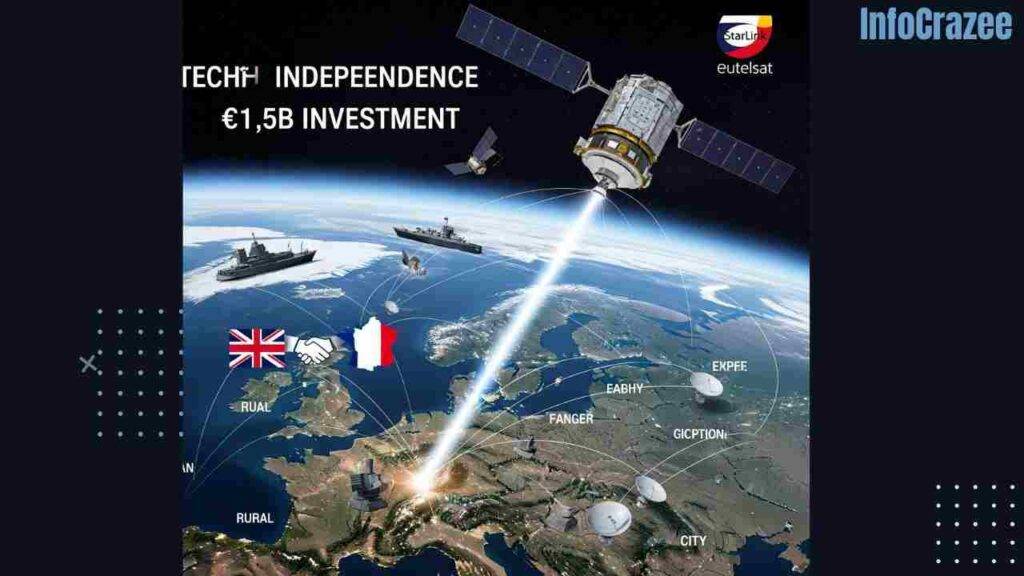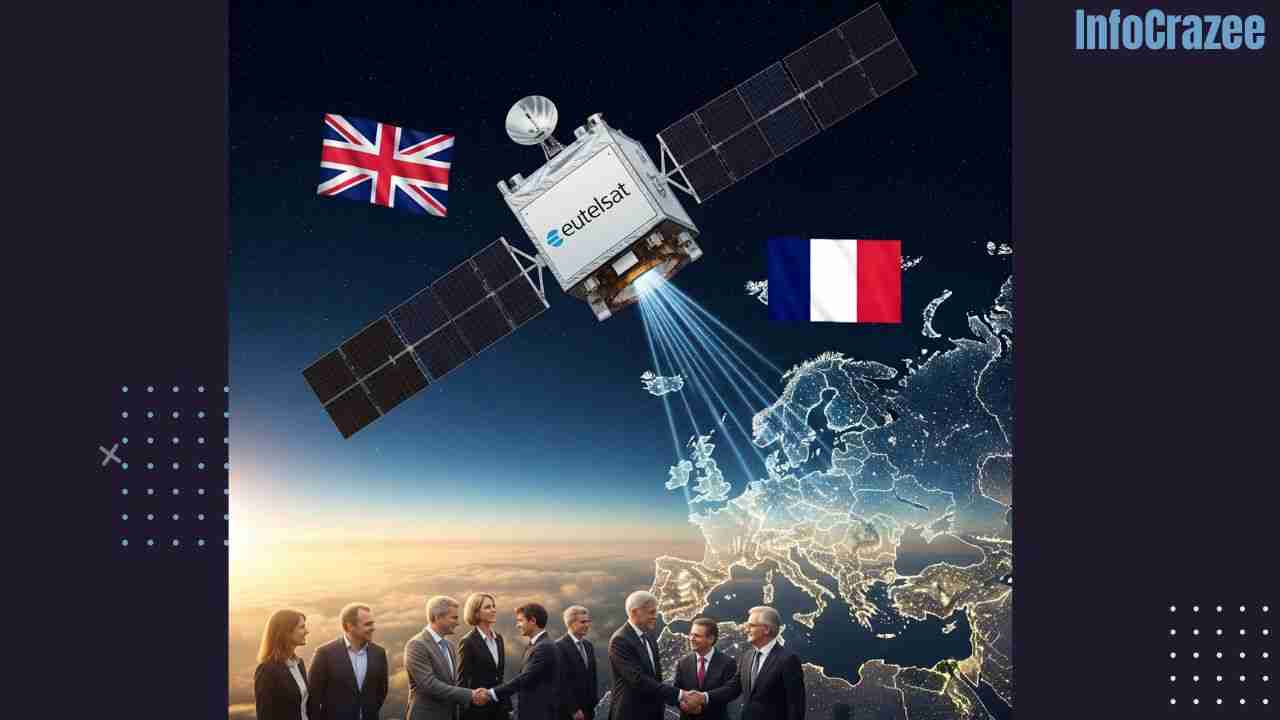UK and France Team Up with €1.5B to Boost Eutelsat, Europe’s Starlink Rival
Imagine having super-fast internet in the middle of nowhere, or secure military comms that don’t rely on a single provider. That’s the vision behind a €1.5 billion investment from the UK and France into Eutelsat, Europe’s answer to Elon Musk’s Starlink. Announced today, this cash injection aims to make Eutelsat a powerhouse in satellite internet, especially for defense and remote areas.
What’s the Deal with Eutelsat?
Picture a network of satellites beaming internet to places where Wi-Fi is a distant dream—think rural villages or war zones like Ukraine. Eutelsat, a Paris-based company, is Europe’s biggest satellite player, with 34 geostationary (GEO) and over 600 low Earth orbit (LEO) satellites after merging with the UK’s OneWeb in 2023. This €1.5 billion boost, led by France (€750M) and joined by the UK (€163.3M), plus investors like Bharti Space and CMA CGM, is set to expand Eutelsat’s reach and challenge Starlink’s 7,000-satellite dominance.
- Why it’s cool: Eutelsat’s mix of GEO and LEO satellites offers fast internet (up to 150 Mbps) and wide coverage, perfect for remote or crisis areas.
- Key stat: Eutelsat’s the world’s second-largest LEO constellation provider, behind only Starlink.
- Fun fact: Its shares jumped 10% in Paris trading after the announcement, showing investors are hyped
Why Are the UK and France Betting Big?
I remember losing internet during a storm and feeling totally cut off—now imagine that in a war zone or a remote village. Europe’s worried about relying too much on Starlink, especially after tensions over its use in Ukraine and Elon Musk’s ties to U.S. politics. France’s President Macron said it’s about avoiding dependence on “other powers,” while the UK sees it as vital for national security.

Building Tech Independence
- Real-world win: Eutelsat’s 2,000 terminals in Ukraine already support government and military comms, and this funding could scale that up.
- Example: During Ukraine’s war, Eutelsat’s terminals kept communication lines open when traditional networks failed.
Strengthening Defense
- Real-world win: Eutelsat signed a €1B deal for French military comms, and this investment could expand secure services across Europe.
- Example: A NATO base could use Eutelsat for encrypted data, keeping it safe from cyberattacks.
Connecting Remote Areas
- Real-world win: Eutelsat’s satellites can bring internet to rural Europe or ships at sea, narrowing the digital divide.
- Example: A farmer in rural Scotland could stream farming tutorials or sell crops online with Eutelsat’s service.
How This Impacts You
You might be wondering, “What’s in it for me?” Whether you’re a tech fan, a rural resident, or just curious.
- Better internet access: If you live in a remote area, Eutelsat’s expansion could mean faster, more reliable internet soon.
- Job opportunities: Eutelsat’s growth might create roles in tech, satellite ops, or cybersecurity—check their site for openings!
- Safer communications: For governments or businesses, Eutelsat offers a European-controlled option, reducing reliance on U.S. firms.
Challenges to Watch
This plan’s exciting, but it’s not all smooth skies. Here’s what could trip things up:
- Catching up to Starlink: Eutelsat’s 600+ LEO satellites are dwarfed by Starlink’s 7,000, and scaling up fast is tough.
- Costly terminals: OneWeb terminals cost up to $10,000, compared to Starlink’s $589, so affordability is a hurdle.
- Political tensions: EU-UK coordination post-Brexit isn’t easy, and joining projects like IRIS² could be a “stretch” for the UK’s budget.
How to Stay in the Loop
- Follow Eutelsat: Check their website or social media for updates on services and launches.
- Explore IRIS²: Learn about the EU’s €10.6B satellite project, where Eutelsat’s a key player.
- Learn about satellite tech: Try Coursera for courses on space tech to understand the industry better.
A Personal Take
When I heard about Starlink helping Ukraine but also causing geopolitical headaches, I thought about how much we rely on a few big players for internet. Eutelsat’s push, backed by the UK and France, feels like Europe saying, “We’ve got this!”.It’s thrilling, but I hope they can keep costs down so everyone, not just governments, can benefit.
What’s Next for Eutelsat?
This €1.5 billion is just the start. Eutelsat’s set to lead the LEO segment of the EU’s IRIS² project, a €10.6B plan for 290 satellites by 2030, aiming for secure comms and rural connectivity. The company expects €6.5B in revenue from EU customers over the project’s life. Meanwhile, France’s 29.65% stake and the UK’s 10.89% stake cement their commitment to Eutelsat as a Starlink rival. Expect more investments, new satellites, and maybe even cheaper terminals to make this a true game-changer.






